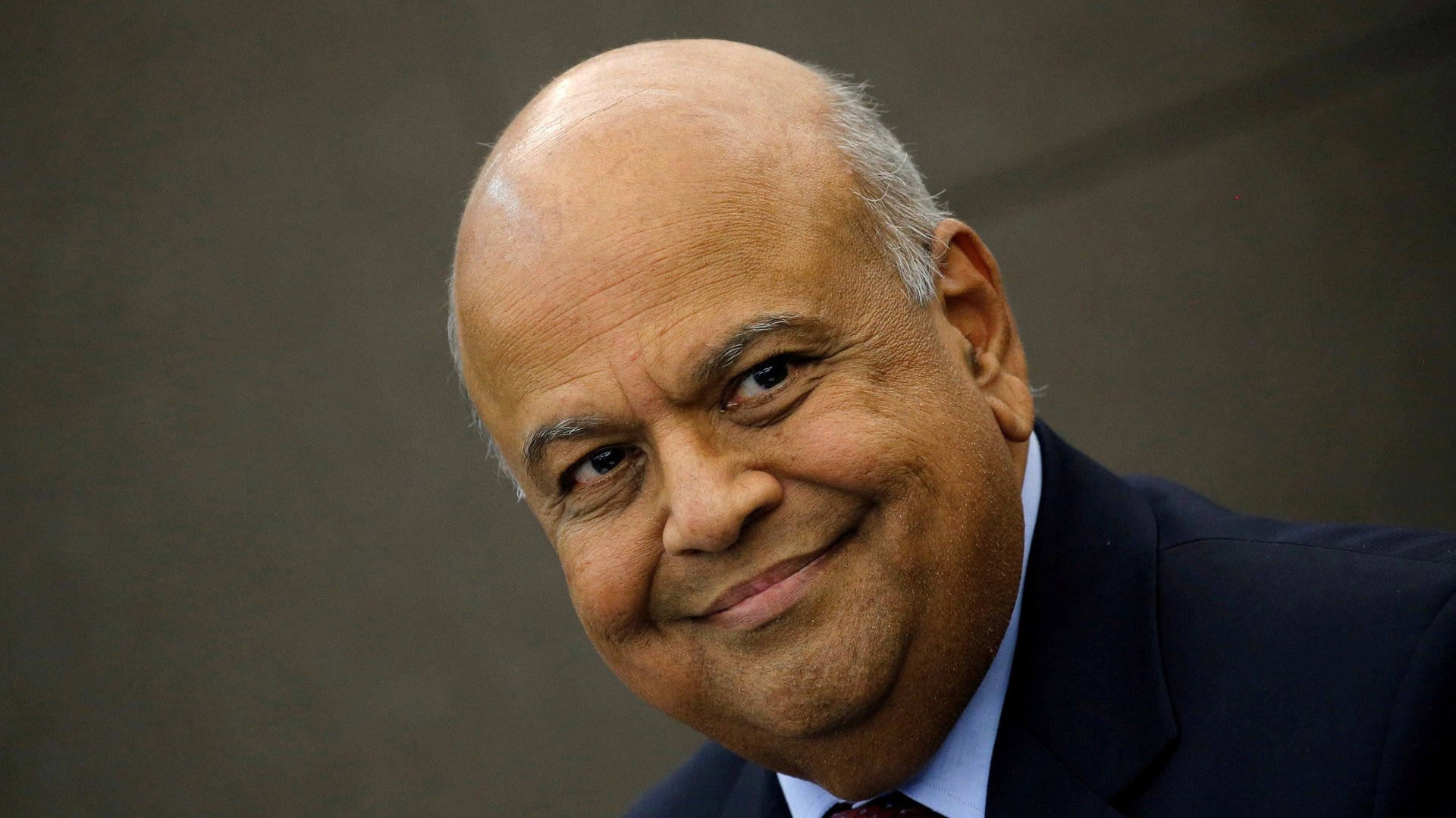South Africa has dropped fraud charges against its finance minister and its currency is up—for now
South Africa’s prosecutors have dropped fraud charges against finance minister Pravin Gordhan just two days before he was set to appear in court in what would have been another move in a political game that has wreaked havoc on South Africa’s currency.


South Africa’s prosecutors have dropped fraud charges against finance minister Pravin Gordhan just two days before he was set to appear in court in what would have been another move in a political game that has wreaked havoc on South Africa’s currency.
The televised announcement, by the head of the National Prosecuting Authority Shaun Abrahams, saw South Africa’s currency, the rand, gain 1% and continue to climb throughout the day.
The rand tanked in October, falling as much as 3.4%, when Abrahams announced his office’s intention to prosecute Gordhan. The prosecution alleged that Gordhan and two of his former colleagues from the South African Revenue Service committed fraud when he allowed the early retirement of one of his deputy commissioners, only for the man (who also faced fraud charges) to return to work in 2010. Gordhan headed the revenue service from 1999 to 2009.
In an about turn, Abrahams said he now believed that Gordhan and his colleagues “did not have the requisite intention to act unlawfully.” In a letter addressed to Gordhan’s lawyers, the head of public prosecutions said he that he decided to “overrule the decision to prosecute,” after “perusal” of the case.
“This matter could easily have been clarified had there been proper engagement between the Hawks and Mr Magashule, Mr Pillay and Minister Gordhan,” Abrahams told prosecutors. Abrahams has been accused of pursuing a political agenda, and opposition members have demanded he step down. Abrahams says he’s not going anywhere, and doesn’t think he needs to apologize to anyone, despite the impact his decisions have had on South Africa’s struggling economy.
Analysts and pro-Gordhan commentators have alleged that the charges were linked to a behind the scenes political struggle between Gordhan and president Jacob Zuma. The president has publicly supported Gordhan, but he is accused of using the prosecutor’s office to intimidate the minister. As head of treasury, Gordhan is believed to be blocking lucrative but potentially corrupt public contracts.
Gordhan took over as finance minister in December last year, after the president shuffled three finance ministers in less than a week. Gordhan, who served as finance minister from 2009 to 2014, was widely seen as a compromise appointment by Zuma after his surprise move to replace a respected technocrat with an unknown member of parliament.
Gordhan’s second tenure has been dogged by rumors of arrest, which has affected the rand each time. In February, police investigators demanded that Gordhan answer questions just days before he was to deliver a crucial budget speech. In May, the rand tanked after rumors of Gordhan’s arrest over allegations of espionage and corruption carried out by a “rogue unit,” while he was head of the South African Revenue Service nearly a decade ago. And again in August, the currency weakened significantly on the news that Gordhan yet again faced arrest over the same allegations.
Nonetheless, the markets have welcomed Gordhan’s return, with the currency and the economy slowly recovering, despite the political drama.